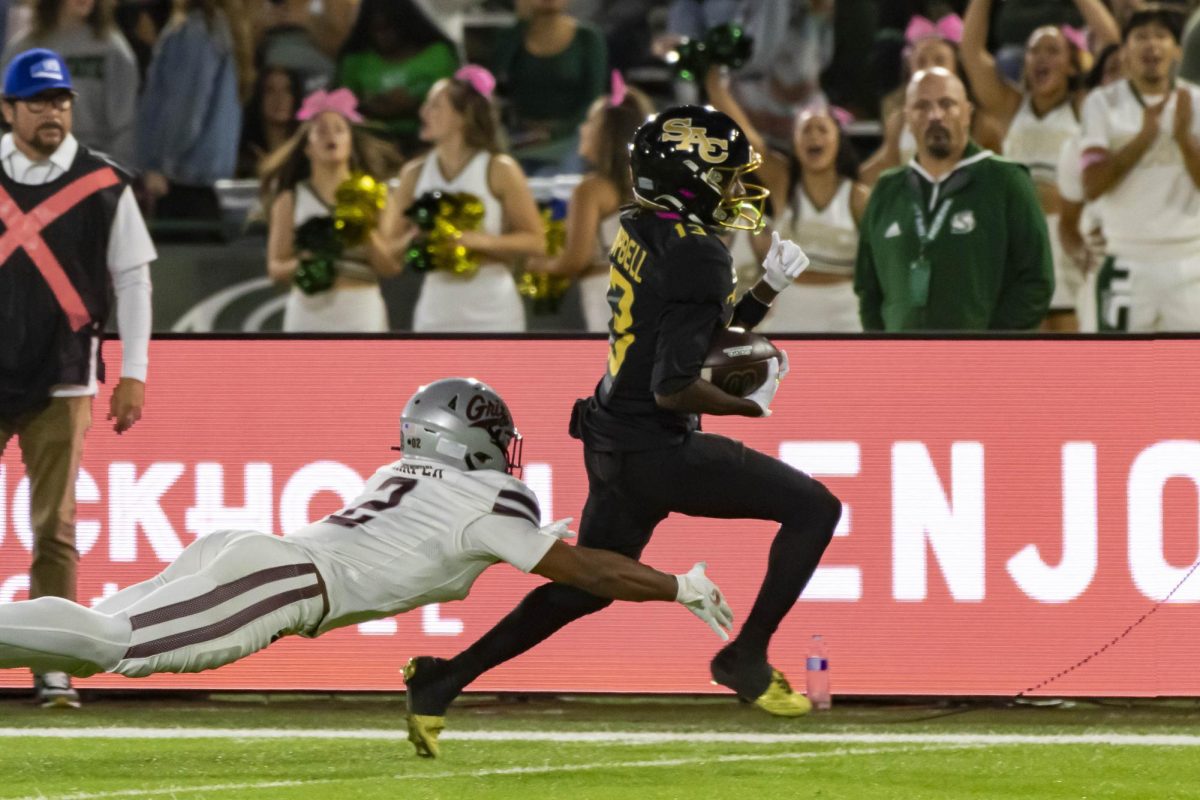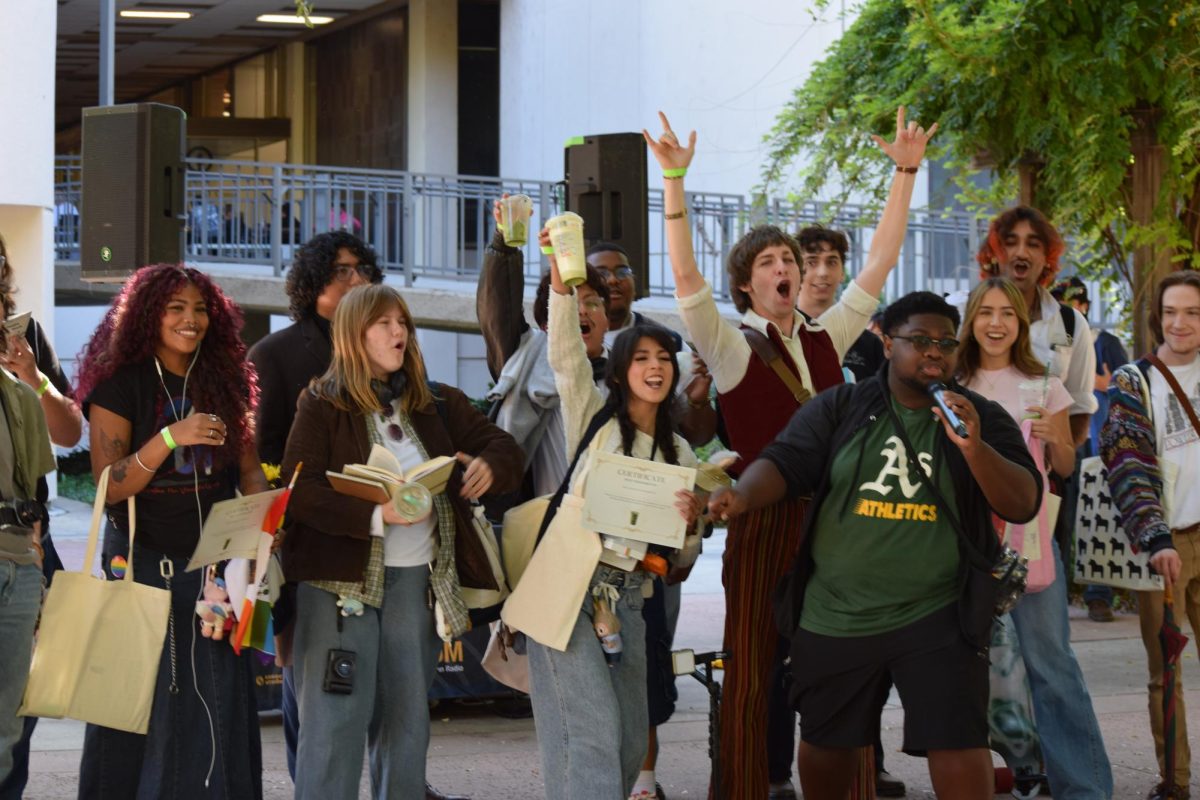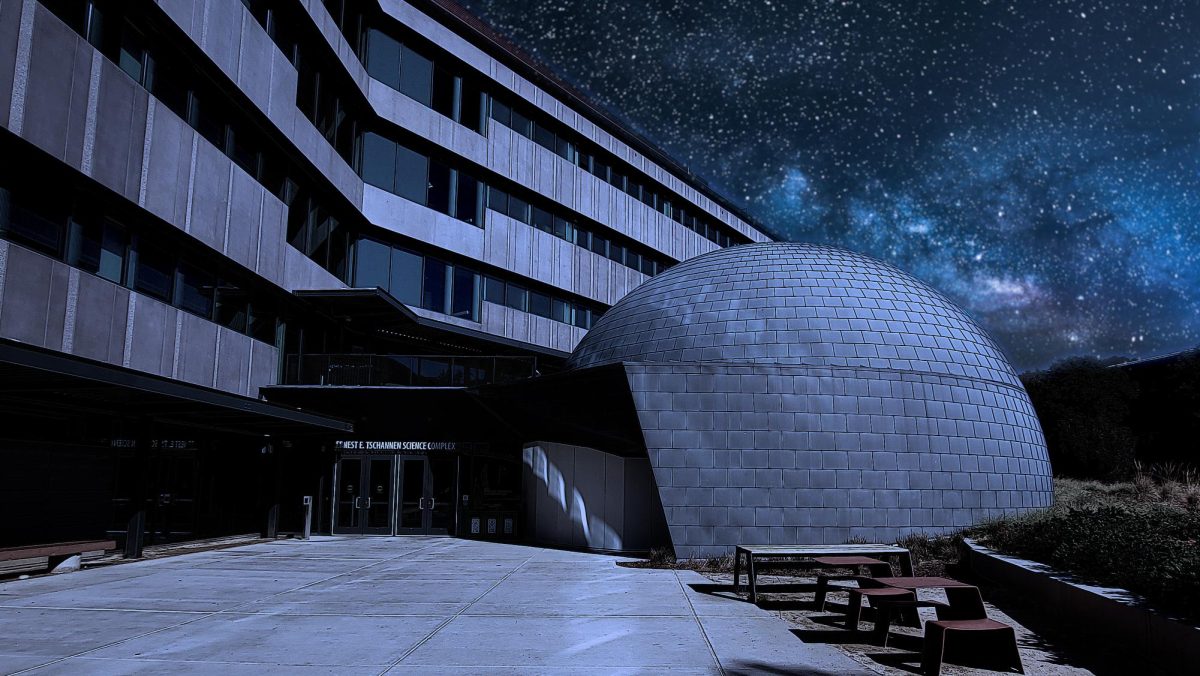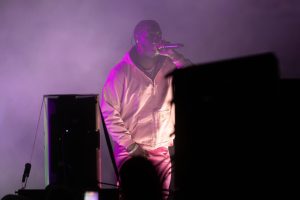‘Power of youth’ a highlight of speech
June 10, 2009
Hundreds of Sacramento State students and faculty filled the University Union Ballroom to hear Maya Soetoro-Ng, the younger half-sister of President Barack Obama speak on her teaching techniques and the power of today’s youth.
Nearly 1,500 people witnessed the visit, which was Soetoro-Ng’s first speech since her brother was elected president.
Sac State President Alexander Gonzalez was the first of several dignitaries to give welcoming remarks. He was followed by a surprise appearance from Sacramento Mayor Kevin Johnson.
“This is just so awesome for all of us, and as the mayor of the city, we just want to welcome you and invite you back as often as you can? If you come back enough, we’ll even give you the key to the city,” Johnson said.
Cooper-Woodson Program Director Boatamo Mosupyoe knows Soetoro-Ng from working together on the international advisory board of Global Majority, a nonprofit organization that mediates conflicts in unstable regions and advocates world peace. Cooper-Woodson is an academic support and retention program for undergraduate students.
“I thought it was good lesson in how to conduct peace education and construct peace curriculum because you get lessons from experience,” Mosupyoe said of Soetoro-Ng’s speech.
Soetoro-Ng teaches a class called “Peace Makers: On the Power of Nonviolence” at La Pietra, a private all-girls school back at her home in Honolulu.
Many students, however, seemed to only be present for the star presence of Sac State’s guest of honor; it was only about 25 minutes into her speech when a small wave of people were seen leaving the auditorium.
“From a professor’s perspective, I feel sad that some students leave,” said David Leon, chair of ethnic studies.
Soetoro-Ng didn’t seem surprised by the motive behind many of the students who came to see her.
“I know you came here because I’m Barack’s sister. I get it,” she said. She thanked the crowd for coming to see her, though she said she would not talk about her brother.
“I’m not here as a representative of my brother,” Soetoro-Ng said. “I want people here who are interested in hearing about the curriculum, not talking about the inauguration.”
Joining Soetoro-Ng on the stage during her speech was her 4-year-old daughter Suhaila. Soetoro-Ng said she tries to expose her daughter to as many grown-up experiences as possible to foster a better understanding of the world beyond her immediate upbringing.
“My daughter is being raised in a manner that is very different from a lot of American kids; namely I just take her everywhere and I expose her to a lot of adult events, and I expose her to a lot of people and faces,” Soetoro-Ng said.
Soetoro-Ng said she likes to expose her students to other avenues of thought during debate sessions by not revealing what side of a topic each debater will be arguing until 10 minutes before the debate starts. By using this method and not letting students pick the side they would like to argue for, Soetoro-Ng said students start to truly understand another person, and learn to resolve conflict peacefully.
Soetoro-Ng’s goal with her Peace Makers class is to help mold young people into innovative thinkers, conflict resolvers and nonviolent leaders with creative, peaceful solutions to complex issues and recognition and tolerance of people’s differences. She drew heavily from the words and wisdom of renowned nonviolent leaders like Mahatma Gandhi and Martin Luther King, Jr., and said that a non-killing society can be achieved through individual practice.
“Basically, I think what we need to be encouraging in ourselves and in our students is this idea that nonviolence is not just a philosophy, but it is, in the Gandhian sense, a way of life. It has to touch every part of us, it has to be in the way that we communicate with one another,” Soetoro-Ng said.
Students like Cathia Sanchez, junior psychology major, said she related to Soetoro-Ng’s message of leadership and creating a global community.
“I’ve never seen so many young people unite,” Sanchez said.
During an interview with The State Hornet after her speech, Soetoro-Ng said young people have an interest in helping others, as well as themselves. They have unique qualities that will set future leaders apart from current leaders.
“Young people are open to new ideas, they have multifaceted solutions to problems; young people are very accepting of globalism, and they can harness the good in our interrelatedness,” Soetoro-Ng said.
Jeanette Ndhlovu, South Africa’s consul general, said it is critical for young people to develop global leadership because of that interconnection around the world, and more importantly because she believes young people can assume the position. Soetoro-Ng said she likes to read Martin Luther King, Jr.’s “Letter from Birmingham Jail” to her students because of the way he wrote about interrelatedness in all parts of people’s lives and in the urgency of people’s involvement and participation wherever possible.
She said that even involvement in small ways, such as breathing techniques, helps students become better leaders and thinkers.
Gonzalez said her message is certain to inspire students to even greater heights.
“Soetoro-Ng’s speech is a testament to our students’ passion for giving back to their communities,” Gonzalez said. “(Her) wonderful message is certain to inspire them to even greater heights.”





























































































































